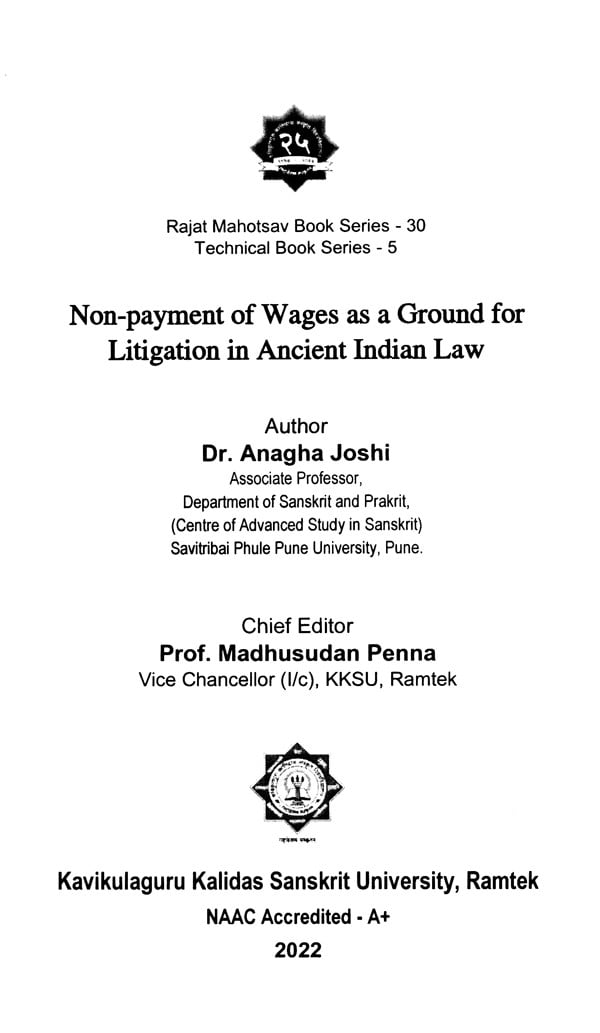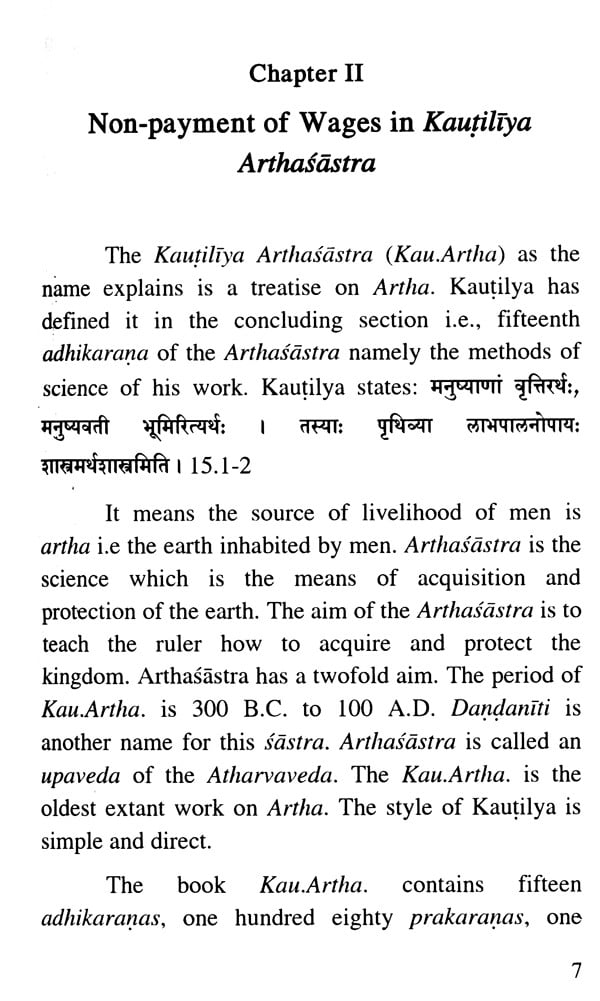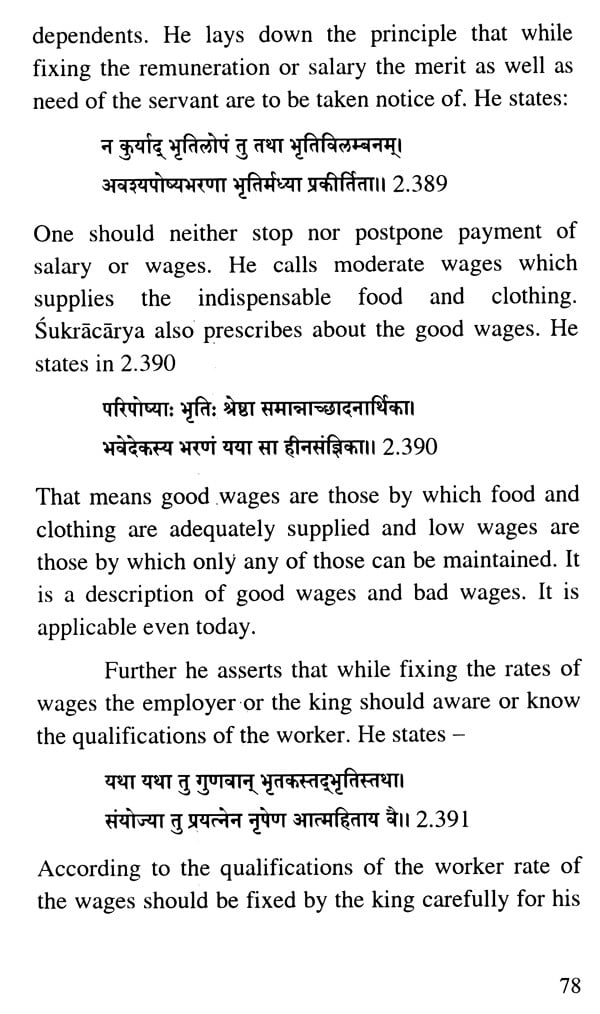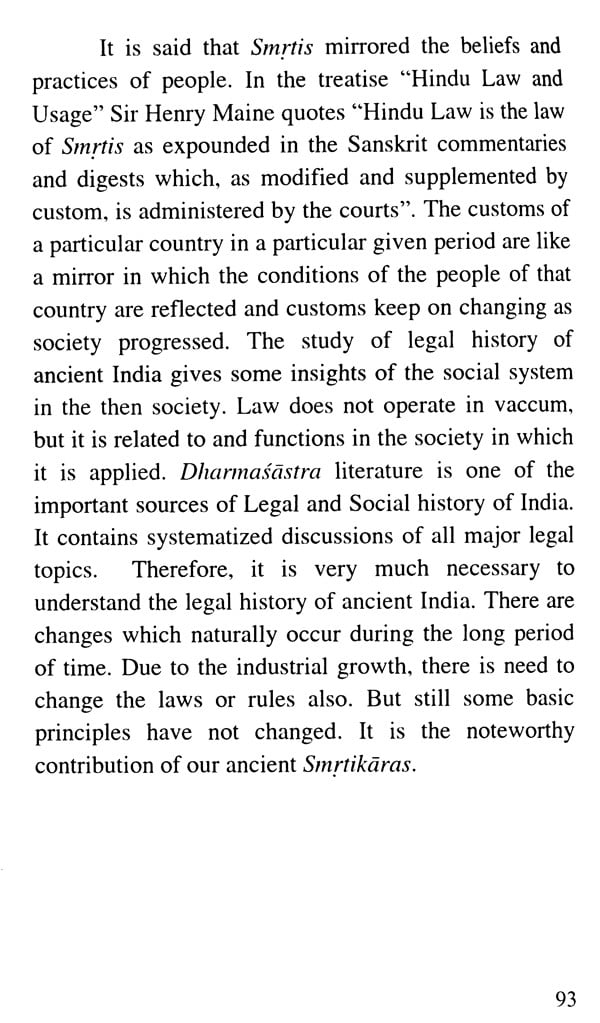
Non-Payment of Wages as a Ground for Litigation in Ancient Indian Law
Book Specification
| Item Code: | UAX977 |
| Author: | Madhusudan Penna |
| Publisher: | Kavi Kulaguru Kalidas Sanskrit University |
| Language: | Sanskrit and English |
| Edition: | 2022 |
| ISBN: | 9789392938115 |
| Pages: | 102 |
| Cover: | PAPERBACK |
| Other Details | 8.50 X 5.50 inch |
| Weight | 150 gm |
Book Description
These words fill us with so many mixed feelings. So many cuds of memories to reminisce! I deem it my high privilege to have been a direct witness of all the days of struggle and success of KKSU. We, of KKSU, have grown along with this great institute and have created a satisfactory recognition along with this historical institution through these years.
On this sacred occasion of "Silver Jubilee" celebration of KKSU in the year 2022, I remember with utmost respect and would like to put on record the unforgettable contribution of great leaders who have created a magic in the form of this Sanskrit University in the state of Maharashtra.
**Contents and Sample Pages**











